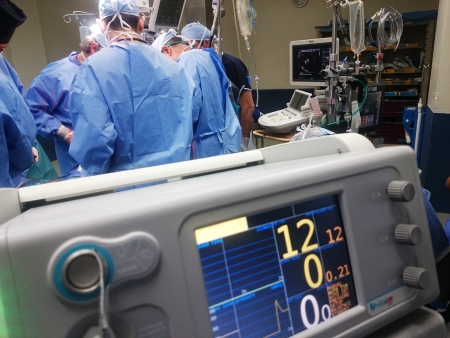
NHS teams across South Yorkshire and Bassetlaw will trial new ways of working to help develop a blueprint for restoring routine NHS care, as part of a new plan unveiled today.
Thanks to the agile way in which the NHS responded to the Covid-19 pandemic, far more people were able to access routine tests and treatment during the second wave of the pandemic than the first, despite hospitals caring for more Covid-positive patients.
Helped by the success of one of the world’s leading vaccine programmes, hospitals are now dealing with far fewer Covid cases and the NHS is now supporting all local health systems in England to treat as many patients whose care was unavoidably disrupted by the pandemic as quickly as possible.
To help find ways to allow the NHS in England to continue progress already made, South Yorkshire and Bassetlaw (SYB) Integrated Care System (ICS) has been chosen as one of the thirteen systems to receive a share of £160m in funding and extra support to implement and evaluate innovative ways to increase the number of elective operations they deliver.
South Yorkshire and Bassetlaw ICS plans include:
- Working with clinicians to improve capacity and streamline pathways, particularly using national care pathway blueprints that highlight best practice transformation ideas for theatres, outpatients and endoscopy services.
- Offering advice and guidance from clinical specialists to support primary care colleagues.
- Developing plans for even more joined up work across SYB, particularly for orthopaedics, ophthalmology and paediatric surgery.
- Making best use of a wide range of providers.
Learning from what works well in South Yorkshire and Bassetlaw and the other ‘elective accelerator’ sites will help form approaches for elective recovery to be used across the country.
Sir Andrew Cash, System Lead for the South Yorkshire and Bassetlaw Integrated Care System said: “We’re delighted to be named among the first wave of health and care systems to trial the NHS Routine Care Recovery Plan. Our strong track record and historical high-performance, particularly when it comes to innovation, means we are able to quickly mobilise the national blueprint development.
“As a mature ICS, our longstanding partnerships across the NHS, primary care, local authorities and community and voluntary sector will ensure we can make the very best use of resources and utilise the wide range of expertise available across the region, to its fullest.
“This additional funding will ensure we can now make a significant impact on rapidly reducing our waiting lists and continue providing high-quality care. It will also help us to make sure that nobody is left behind as we continue to reduce health inequalities across the region - one of our key priorities going forward.”
Professor Des Breen, Medical Director for the South Yorkshire and Bassetlaw Integrated Care System said: “We know that many people in South Yorkshire and Bassetlaw have been adversely impacted by the pandemic and so we’re delighted to be one of the first ‘accelerator’ areas because it means we can rapidly take forward our plans to recover health care services for our population.
“Treating many thousands of Covid-19 patients over the past year across our hospital sites has inevitably had a knock-on effect and the additional funding will enable us to see and treat more patients, more quickly. Before the pandemic, we had an excellent track record with the vast majority of patients waiting less than 18 weeks for non-urgent hospital procedures and we are keen to get back to delivering health care to those people who need us.”
As part of recovery plans for elective care announced in March, GPs, specialists and their teams are focusing on those waiting who are in the most urgent clinical need and on those who have been waiting longest. A number of services are already back to the same levels as in 2019 and hospitals are working to get as many more as possible back to delivering health care to the population.
While initial indications suggest the NHS nationally was ahead of its plan by the end of April, the elective accelerator systems programme is an additional initiative with the aim of finding ways to treat even more patients over the summer and beyond.
